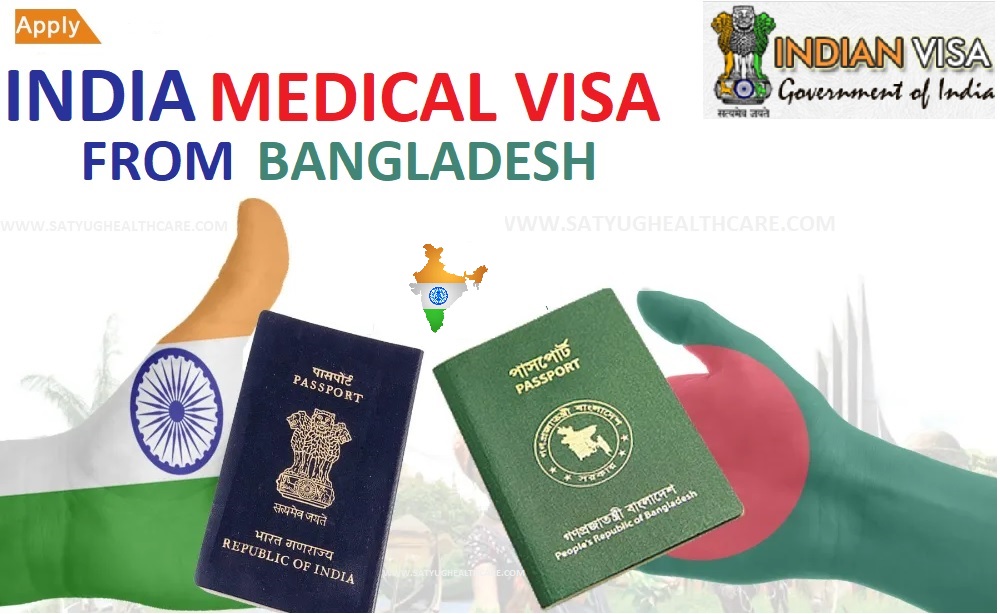India has become a prominent destination for medical tourism, attracting patients from around the world due to its advanced healthcare facilities and cost-effective treatments. For individuals seeking medical care in India, obtaining a Medical Visa is a crucial step in the process. This article provides a detailed overview of the Medical Visa for India, covering the types available, the application process, and essential tips for ensuring a successful application.
Types of Medical Visas
Medical Visa: The standard Medical Visa is intended for individuals traveling to India to receive medical treatment. Medical Visa for India This visa allows patients to stay in India for the duration of their treatment, which is typically determined by the attending medical facility. To qualify for a Medical Visa, applicants must provide a medical report from a recognized hospital in India, proof of financial resources to cover treatment costs, and evidence of the need for medical care in India. This visa is generally issued for the period required for treatment and can be extended based on medical advice.
Medical Attendant Visa: In addition to the patient’s Medical Visa, accompanying family members or caretakers may apply for a Medical Attendant Visa. This visa is granted to individuals who are traveling with or assisting the patient during their stay in India. The Medical Attendant Visa allows for a similar duration of stay as the patient’s visa, ensuring that the attendant can provide necessary support throughout the treatment period. Applicants must provide a letter from the medical facility confirming their role as an attendant and evidence of their relationship to the patient.
Medical Visa (for Follow-Up Treatment): For patients who require follow-up treatment after their initial medical visit, a Medical Visa (for Follow-Up Treatment) is available. This visa is suitable for individuals who need to return to India for additional procedures or consultations. Applicants must provide documentation from the initial medical facility detailing the need for follow-up treatment and evidence of previous medical care received in India. This visa allows patients to continue their treatment plan and ensure ongoing care.
Medical Visa (for Specialized Treatments): Some medical conditions may require specialized treatments that are not available in the patient’s home country. The Medical Visa (for Specialized Treatments) caters to such needs, allowing individuals to travel to India for advanced or unique medical procedures. Applicants must provide documentation from a specialized medical institution in India confirming the availability of the required treatment and evidence of the need for specialized care.
Emergency Medical Visa: In urgent situations where immediate medical care is needed, an Emergency Medical Visa can be issued. This visa is designed for patients who require prompt treatment due to unforeseen medical emergencies. To qualify, applicants must provide evidence of the medical emergency, such as a report from a local healthcare provider or hospital, and documentation of the need for urgent treatment in India. The Emergency Medical Visa is typically issued for a short duration and can be extended based on the patient’s condition and treatment requirements.
Application Process for Medical Visas
Determine the Appropriate Visa Type: Begin by identifying the visa category that best fits your medical needs. Each type of visa has specific requirements and processing times, so choosing the correct visa is essential for a successful application. Gather Required Documents: Prepare and submit the necessary documents for your application. Commonly required documents include a valid passport, passport-sized photographs, a medical report from an Indian hospital, proof of financial resources, and a letter from the medical facility detailing the treatment plan. For Medical Attendant Visas, include documentation of the relationship to the patient and the role of the attendant.
Submit Your Application: Applications can be submitted online through the Indian government’s visa application website or at an Indian embassy or consulate. The online application process allows for easier tracking of your application status and is generally faster. Pay the Visa Fee: Each visa type requires payment of a fee, which varies depending on the visa category and duration of stay. Check the current fees on the Indian visa application website and make the payment as required. Keep a record of the payment confirmation for your application. Attend an Interview (if Required): Some visa applications may require an interview, especially in cases involving complex medical conditions or emergency situations. Be prepared to discuss your medical needs and provide any additional information requested during the interview.
Tips for a Successful Visa Application
Provide Accurate and Complete Information: Ensure that all application forms are completed accurately and consistently. Any errors or omissions can lead to delays or rejection of your application. Submit Comprehensive Documentation: Provide all required documents in full and ensure they are current. Missing or outdated documents can impact the processing of your visa. Indian Visa from Australia Seek Medical Advice: Obtain a detailed medical report from a recognized healthcare provider, and ensure that it includes all necessary information about your treatment plan and needs. Consult a Visa Advisor: If you are uncertain about the visa requirements or application process, consider consulting a visa advisor or legal expert specializing in Indian immigration. Apply Early: Visa processing times can vary, so it is advisable to apply well in advance of your planned travel dates to avoid potential delays.
Conclusion
For individuals seeking medical care in India, understanding the Medical Visa process is essential for a successful visit. By identifying the appropriate visa type and carefully following the application procedures, patients and their attendants can ensure a smooth and efficient process. Whether for routine treatment, specialized procedures, or emergency care, obtaining the correct Medical Visa is key to receiving the necessary medical attention in India and ensuring a positive healthcare experience.
